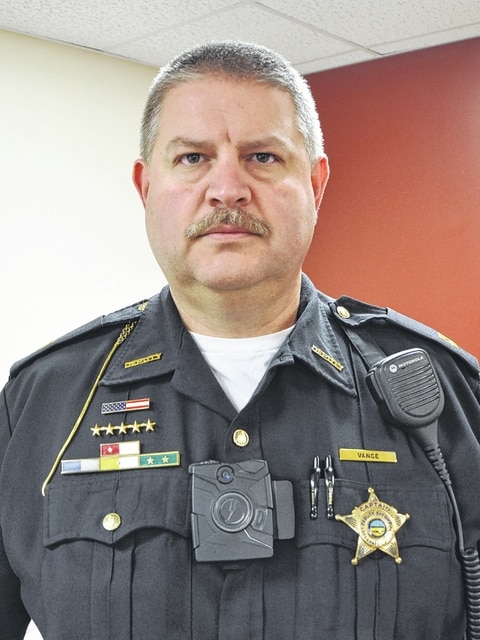
The recent fatal shooting of an unarmed motorist by a university police officer in Cincinnati — captured by a camera worn by the officer — has police forces across the nation discussing campus police departments and the use of so-called “body cams” by officers.
In Delaware, local police say they have a good working relationship with Ohio Wesleyan University public safety officers, and the university says it isn’t considering getting body cameras for officers. Delaware police and the Delaware County Sheriff’s Office still are considering whether to equip officers with the cameras.
The July shooting in Cincinnati caused a public outcry against the University of Cincinnati police officer who was charged with murder after a traffic stop turned into a fatal shooting. The shooting garnered national attention as debates about police accountability and brutality continue.
The body-camera video, which was released by University of Cincinnati police, shows Officer Ray Tensing stop Samuel DuBose off-campus for a missing front license plate. The video shows the traffic stop quickly escalate and Tensing shooting DuBose in the head. Tensing told authorities he believed he would be dragged under the car as DuBose attempted to drive away.
Delaware Police Chief Bruce Pijanowski they have examined the situation and evaluated their relationship with OWU public safety officers and said “they are drastically different situations.”
Pijanowski explained that OWU public safety officers are not commissioned police officers and don’t carry weapons. He added they they do not have the authority to conduct traffic stops.
“We have a great relationship with [OWU public safety],” Pijanowski said. He said Delaware police operate in tandem with public safety officers if an arrest needs to be made on campus.
Delaware County Sheriff Russell Martin, formerly the Delaware city police chief, said OWU will contact local police in “high-risk” situations.
“We encourage them not to put themselves in harm’s way,” Martin said.
Cole Hatcher, director of media and community relations at OWU, echoed Pijanowski’s sentiments and said the relationship between police and OWU is strong.
Hatcher said OWU is not looking at buying body cameras for its officers at this time.
“As for discussing the Cincinnati incident, our public safety director and public safety officers often attend workshops and trainings to ensure they are current with best practices and protocols,” Hatcher said.
Martin said the Delaware County Sheriff’s Office is still looking at body cameras and has just finished testing out three separate brands. The sheriff has said his office will equip officers with the cameras after they decide which model works best for the department.
Martin and Pijanowski agree that body cameras are a good idea because it helps with transparency; however, both men believe there are a number of issues that should be addressed before they are fully implemented.
Both discussed privacy concerns because deputies and officers often go inside people’s homes or deal with delicate and sensitive situations.
Pijanowski said Delaware police are considering body cameras but they are costly.
Pijanowski stressed that local police participate in scenario training to prepare officers to react appropriately when making split-second decisions.
“I think we are well-positioned because of the training and quality of our officers,” Pijanowski said.


